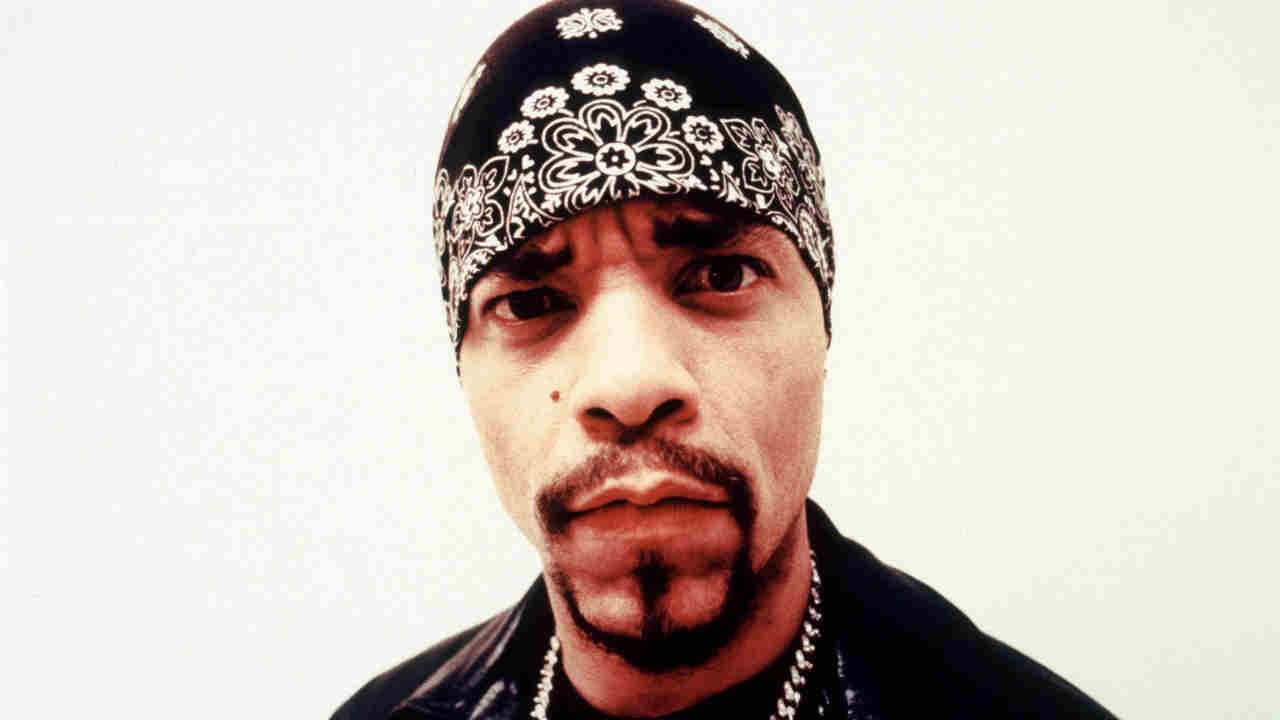Bring Me The Horizon's Oli Sykes: 'I Didn't Care If I Lived Or Died.'
They’re Wembley-conquering stars, but things haven’t been easy for Bring Me The Horizon. As they release That’s The Spirit, frontman Oli Sykes reveals how he fought to save his soul
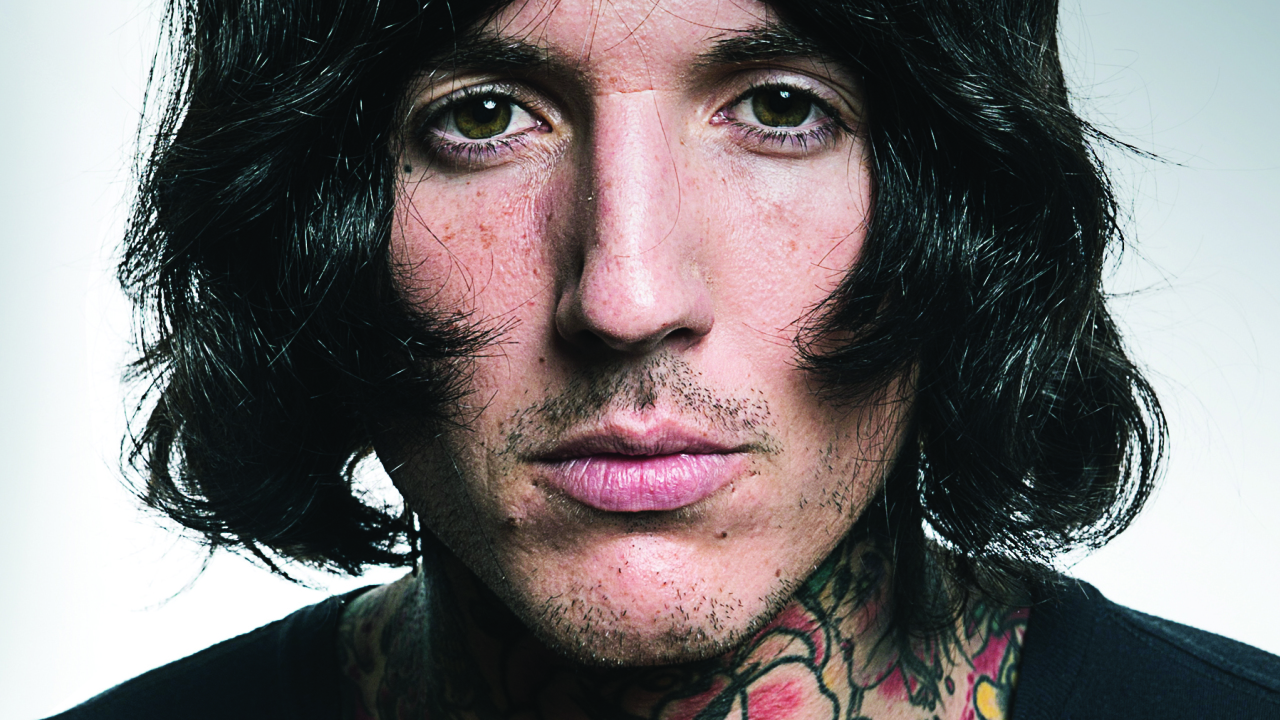
This article originally appeared in Metal Hammer #275.
A taxi pulls up to Hammer Towers in London, and an inky-faced gentleman exits. Clad in a baggy cargo jacket and a beanie, the unassuming figure slowly drifts towards the door.
“Y’alright?” he greet us, in a Northern drawl. It’s hard to believe this man headlined Wembley Arena to more than 12,500 people last December, and is preparing to release one of the biggest albums of the year. His name? Oli Sykes.
If you’ve been hiding under a rock on Mars for the past decade, allow us to provide a crash-course. Oli’s band, Bring Me The Horizon, formed in Sheffield in 2004, and released debut album Count Your Blessings two years later. It was a messy celebration of deathcore, which isolated metal purists yet introduced a legion of young fans to heavy music. Follow-ups Suicide Season (2008) and There Is A Hell Believe Me I’ve Seen It, There Is A Heaven Let’s Keep It A Secret (2010) veered towards more metalcore territory, with added electronics. But it was 2013’s masterful Sempiternal that really saw them break the ‘mainstream’. Released through Sony, and splattered with electronic elements from new member and keyboardist Jordan Fish, it reached Number Three in the UK album charts. With lyrics such as, ‘I can’t drown my demons / They know how to swim’ (Can You Feel My Heart), it was a deeply personal affair, with Oli alluding to problems he’d struggled to ovecome. He later revealed he’d been addicted to ketamine, and had admitted himself to rehab.
Now poised to release fifth album That’s The Spirit – recorded in the gorgeous surroundings of Santorini, Greece, and self-produced for the first time – we begin by asking Oli about those dark days, and how he’s feeling now.
Before Sempiternal was released, you discussed being in a dark place, and being forced to believe in God. Can you elaborate on that now?
“I went to rehab and it was my second attempt. My first attempt was the Twelve-Step Program and it didn’t click with me; I didn’t think it was something in today’s society that would still hold up as a thing. The second step is to hand your will over to God and ask for his help – I thought that was madness. I’m not gonna put my trust into something that I don’t believe is real – what good is that? I can’t sit around a group of people who are trying to get better for God. Why not their family? Their friends? This is the worst way of trying to get clean; you need to get clean for yourself and your family, not for something that doesn’t exist.”
Sign up below to get the latest from Metal Hammer, plus exclusive special offers, direct to your inbox!
So what happened?
“I just went into a general ward, not necessarily for addiction, but there were self-harmers, people struggling with sexuality issues, people who’d been raped, schizophrenics… and for me that was a much better experience. I befriended a schizophrenic teacher, a girl with an eating disorder, a kid who was anorexic and a girl who self-harmed who was a fan of the band but wasn’t allowed to tell me. I paid a lot of money to go in there and I wanted a magic trick to get better; a trick to make me not do these drugs anymore. But all the people in there with all these different things, when you talk to them about what you’re going through, it’s exactly the same. No matter what you do – whether you’re cutting yourself or scared to admit your sexuality – you’re going through the same things.”
Did it work better than the twelve Steps?
“They’d tell you, ‘Every day will be a struggle, every day you’re inflicted with this disease.’ To me, that’s offensive to people with actual diseases. And it’s offensive to tell someone that they will want drugs every day because it’s who they are. No, I got into drugs for fun, and it’s developed into a crutch for something else. I don’t want drugs, I don’t long for drugs. I can watch people do lines of coke and just say, ‘How’s the coke?’ I don’t give a fuck. I had to go through my own custom way of getting better, but it works, so I’m not really looking back.”
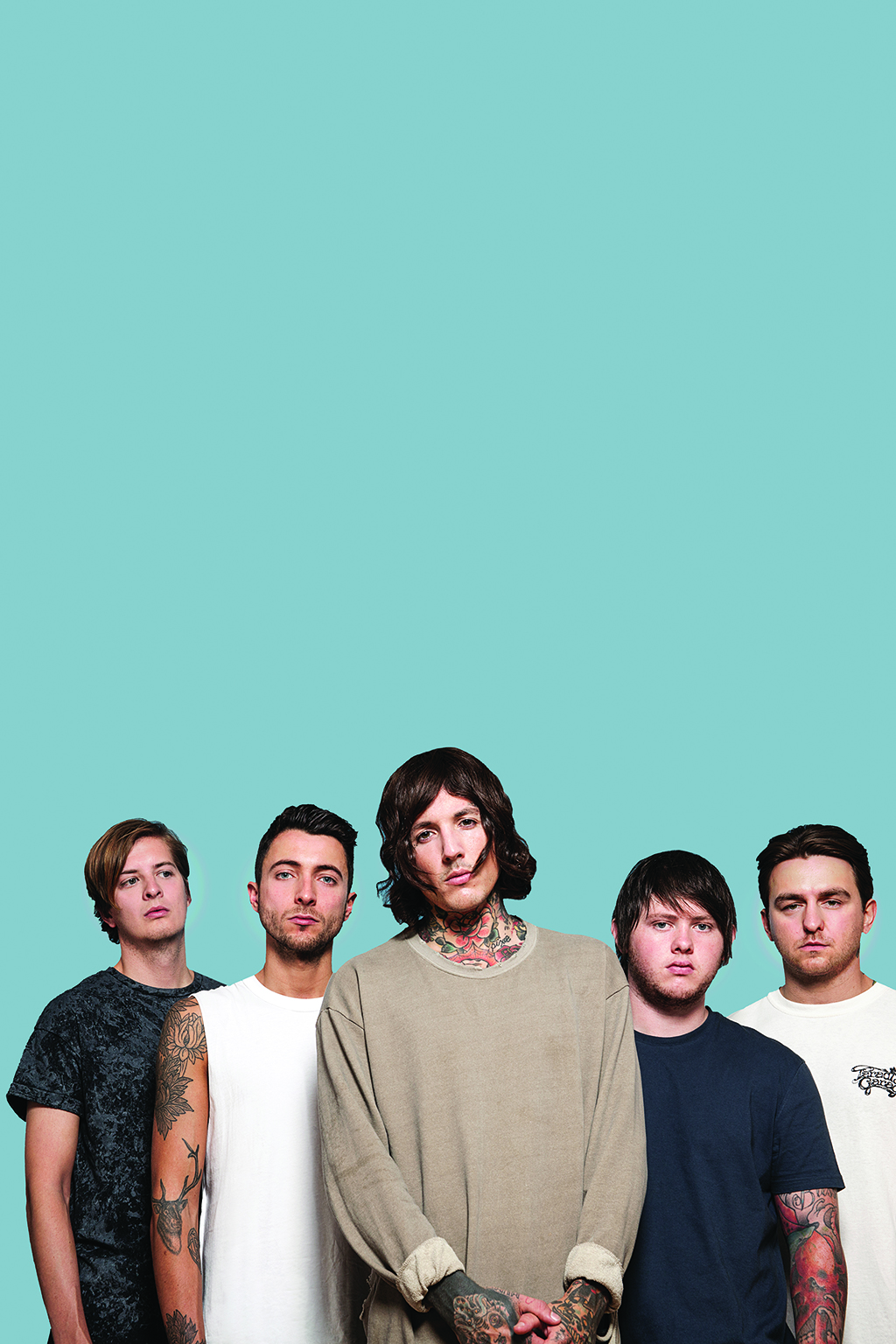
Oli recently described the new album as “a celebration of depression”. And with song themes ranging from drug culture (Oh No) to mates screwing you over (True Friends), you’d be forgiven for thinking Oli is familiar with ‘the black dog’. But that’s not necessarily the case. Instead, he’s exploring the ways we process emotion in today’s world, and how the existence of sadness could actually be affirmative.
What does the phrase ‘celebration of depression’ mean to you?
“I’m not trying to glorify or romanticise actual depression. The problem we have in society today is that it’s so easy to ignore the darkness of your mind, because we can be constantly hooked up. We don’t like to be alone; people aren’t alone. If you go away from someone, you’re straight on your phone. We’re scared of being with our own thoughts. It’s so unhealthy, ’cause if you never let those emotions take over, or you never think about them, then you can’t work through them, so if you’re feeling shit about the way you look or your job or whatever, and you don’t process that information, it just sits there in this big dark cloud that hangs over you forever. Instead, you’re letting all this shit build up, and I think people would be so much happier if they just let themselves feel.”
Where does the album title come from?
“‘That’s the spirit’ to me is a depressing thing to say to someone, ’cause you say it when you haven’t really got an answer. When they’re in a bad place and they’ve just got to get on with it, you say, ‘That’s the spirit’, and that’s the world – we’re trying to be happy in all the wrong ways. I think sadness can be just as memorable and profound an experience as happiness. That’s what the album is about – it’s about making light of the dark and showing how the shit we go through can be turned into a positive. Happy Song is a social commentary about how we’re all connected in sadness. Sadness is the one emotion we can definitely say everyone has – not everyone gets the privilege of being happy, but we all get the privilege of being sad.”
What has been your darkest moment?
“Just getting to that point of going to rehab. I was never suicidal to the point where I wanted to kill myself, but I was suicidal in the fact that I didn’t give a shit. I clearly had no care if I lived or died.”
- Oli Sykes: The 10 albums that changed my life
- Love And Hate: The Irresistible Rise Of Bring Me The Horizon
- Korn men ‘love’ Bring Me The Horizon
- Every Bring Me The Horizon album, ranked worst to best
New song Avalanche includes the lyric, ‘I feel like suicide’. Does that relate to your don’t-give-a-shit attitude?
“Avalanche is about being diagnosed with ADHD [in rehab]. The way the lyrics are written, it’s like talking to a doctor, and it’s about not feeling like I was wired for this world, feeling like something’s wrong, and an avalanche describes the overwhelming feeling I used to have with stuff. It’s as much about having ADHD as the cure having its own problems.”
Was there any therapy or medication after rehab?
“Being diagnosed with adult ADHD was a massive stepping stone. As we got toward the end of it all, they were starting to treat me as someone that was self-medicating rather than an addict. We tried a bunch of medications and we found one, and it changed my life really – I’ve got a lot to owe to that. It’s funny that I’ve got to take a drug to stop doing other drugs.”
Have you ever thought about quitting the meds?
“I have cut down on my medication; I’m trying harder. If I’m off it for just a day, it’s like the old me times a million, like I’m just stupid. But as soon as that hits, I’m just working and have no time for fun, so I always make sure I come off it every so often and have a few days of being silly and fun. Quitting is out of the question right now; it’s something I wouldn’t dare toy with ’cause it’s done me too much good. I don’t think if I stopped taking it I’d fall back into where I was; it’s just great for working, and the album wouldn’t have been written without the medication.”
Oh No is about drug use. Do you hate that world now?
“I don’t regret taking drugs, and I don’t know if I should say it, but everyone should do drugs at some point in their life. You shouldn’t go through your life without experiencing acid – in my opinion. It used to be fun, it used to be an adventure, that’s why I did all those drugs, but after a while it stops being awesome and that’s the reality. But it’s a hard reality to accept.”
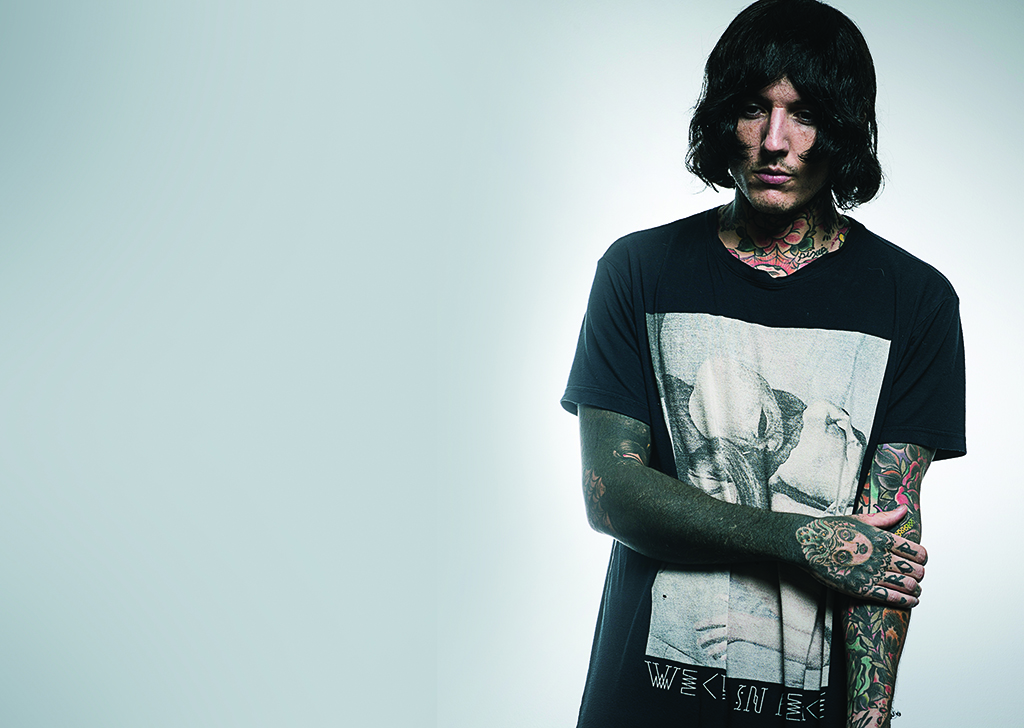
Oli seems to be in a much better place now. Where Sempiternal dealt with anger, apologies and struggles, That’s The Spirit takes a more objective look at what makes us human, and the actions we take in life. In fact, Oli says of writing the album, “I’ve always had a drug addiction, or a scandal, or something to kick against. This time, personally, I don’t have anything I can make a concept out of.” He’s a changed man – he has a growing empire with clothing business Drop Dead, and married longterm girlfriend Hannah Snowdon earlier this year. Now, at 28 years old, Oli Sykes has found some stability.
Has it become more difficult being in the music industry, which isn’t exactly secretive about drug use?
“It’s not hard. Drugs aren’t something that interest me, and if they did I’d take them again, ’cause I’m in a place now where I’m not worried about becoming an addict. The way I got was because of my insecurities that I don’t have anymore, because I dealt with them rather than taking a drug to stop thinking about them. Sometimes it’s hilarious when you see people on drugs and they don’t think you know, but sometimes it’s not the situation for me. Being in a club is just not me anymore.”
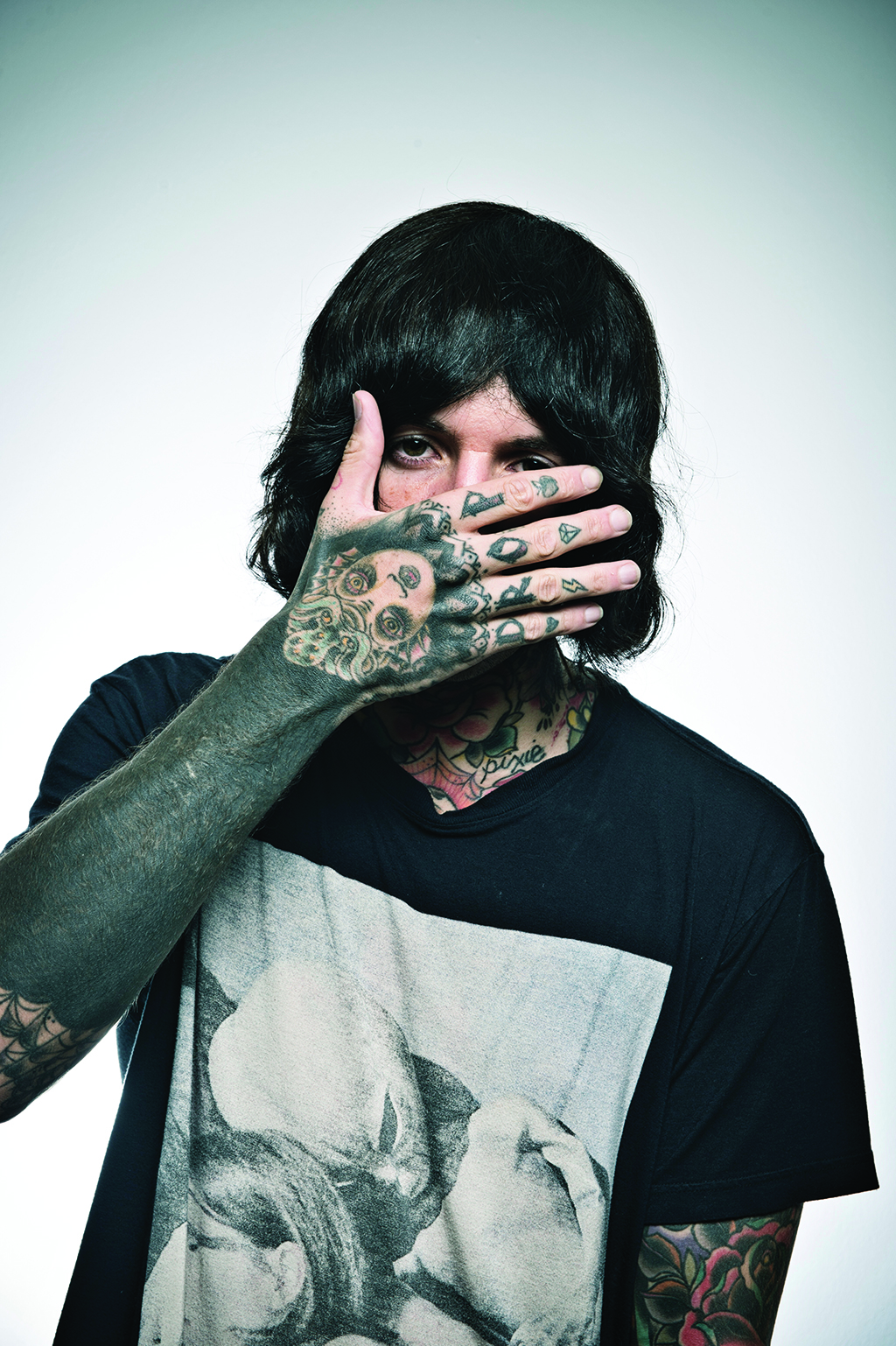
You seem to have calmed down. Follow You is about a submissive sort of love, which is at odds with usual BMTH songs…
“When you’re in a relationship, you have those moments like, ‘Why am I putting myself through this?’ Because when you’re in a relationship like that, your emotions are together; if they’re in a bad way, you’re in a bad way. If they’re angry at you, you can’t go on with your life like it doesn’t matter. I carry it, so I carry whatever Hannah’s carrying. Follow You is about not wanting to do it any more, but realising that, no matter what happens, you’ll never turn away, ’cause the alternative is worse than what could ever happen in a relationship. And for me, being without her is much worse. It’s an emotional song for me and my wife.”
Before Sempiternal, you said you hated yourself. Is that no longer true?
“I’ve dealt with stuff I hadn’t dealt with, and I’ve accepted things. I see it with my wife Hannah now, who’s getting more popular with her tattooing, doing photoshoots and having people idolising her – I can see her struggling with the same things that happened to me. Thankfully, I can be there to say, ‘That’s normal, this is how you deal with it’, which I didn’t have back then. At risk of sounding like a whiny little bastard, dealing with the way you look in a magazine or the way people think you are, after a while you start trying to be that. You start trying to be that Photoshopped cool guy, and every day you wake up and you’re not him, ’cause no one is; no one looks as good as they do on a cover or comes across as cool as they do in a video. People start thinking about you that way, and you feel like a letdown when you’re not.”
How did you deal with that?
“A turning point for me was accepting that it’s two different people. I want to be perceived in magazines as me, rather than someone else. I want to be me in both as much as I can. It’s finding that balance of not going too far one way and becoming this unrealistic thing, but realising that, whatever you do in this job, it is unrealistic.”
Luke Morton joined Metal Hammer as Online Editor in 2014, having previously worked as News Editor at popular (but now sadly defunct) alternative lifestyle magazine, Front. As well as helming the Metal Hammer website for the four years that followed, Luke also helped relaunch the Metal Hammer podcast in early 2018, producing, scripting and presenting the relaunched show during its early days. He also wrote regular features for the magazine, including a 2018 cover feature for his very favourite band in the world, Slipknot, discussing their turbulent 2008 album, All Hope Is Gone.
